If anybody thinks that persecution is a thing of the past, and imagines it to be something only inside the torture chambers of the theomachist sadists of the Cheka or pagan Rome, then they are reassuring themselves in vain. Confession of the faith is the future of the Church and, probably, her present too. For at the beginning of the twentieth-first century, in a country in central Europe, with mass media and offices of human rights defenders, huge shopping malls and gleaming limousines on the streets, the unimaginable is unfolding before us.
The path from peace to persecution isn't complex. Act One is dedicated to the pathetic monologues, sessions of meetings and appeals to Patriarch Bartholomew expressing their agreed hope for the liberation of Ukrainian Orthodoxy from the oppressive yoke of Moscow. Opinions polls are conducted according to which the majority of Ukrainian citizens desire "national Orthodoxy". Finally, in response to the appeals of citizens and working collectives, the Church of Constantinople solemnly proclaims the setting up of her exarchate with her throne in Kiev, which is to form the basis of unifying work. The cup of future sufferings is brought to the fore and the clock stops at five minutes to midnight.
Act Two, in which in order to come together, it is essential to delineate themselves. The few priests and bishops, known as autocephalists, even though they are simply anti-Moscow types who will never see autocephaly in a month of Sundays, convoke an event called the 'All-Ukrainian Council' at which they create not a Supreme Church Administration, but the one true Holy Synod of the Ukrainian Local Orthodox Church or Ukrainian Local Orthodox Church (Unified), shortened to ULOC (U), i.e. that is essentially a new, fourth ecclesiastical jurisdiction which goes under the heading of the Exarch His All-Holiness Patriarch Bartholomew. Diocese, parishes and monasteries are called upon to join quickly the ULOC (U), and the territorial structure of the future of the One Local Church begins to take shape. The clock points to four minutes to midnight.
In Act Three the process moves along weakly and it is decided to whip it into shape externally. The number of those joining remains small - Metropolitan Onuphrius's authority outweighs all others. Kiev officials burp sourly as they propagate a new schism. The stage is occupied by collectives acting on their own - participants of nationalist formations, portraying themselves this time as Gospel saints and zealous churchgoers. Rada deputies adopt a law on 'self-determination' (meaning changing the status of ecclesiastical objects). Meetings are organized ubiquitously at which clergy and lay people clash with a wave of people who have come from God knows where to aggressively pressurize them into joining the ULOC (U). Fighting breaks out as church buildings are seized, blood is spilt. Divisions of the National Guard come to the Kiev Monastery of the Caves and the Monastery of St. Job of Pochaev, officially in order to avert disorder and violence, but in reality to get ready the transfer of monastery property to the schismatics. This is not yet persecution, both sides flex their muscles; however, the outcome of the struggle is predetermined: the canonical Orthodox community gradually finds itself in the position of a harassed minority. The media is silent about the scale of the infringement of rights by whipping up an atmosphere of hostility towards the 'Muscovite faith' and 'Muscovite priests'. International opinion is in a good mood as it is occupied mainly with the problems of the Crimean Tartars. So, the clock points to three minutes to midnight.
In Act Four the destruction of the organizational structures of the Ukrainian Orthodox Church of the Moscow Patriarchate (UOC MP) becomes a fait accompli, the authorities force the clergy and communities of Orthodox Christians retaining their loyalty to Metropolitan Onuphrius into a semi-legal position. They are forced into abandoning their churches, monasteries and diocesan administrations, which are then triumphantly taken over by representatives of the ULOC (U). Not being able to withstand the pressure, a significant part of the bishops, priests and parishioners agree to go over to the jurisdiction of Constantinople. But many active lay people and clergy prefer not to be reconciled with this: the celebration of the sacraments, pastoral care and charitable ministry take place unofficially, in homes, in those few buildings which have been re-registered as the property of non-commercial organizations and charitable institutions, collective enterprises and so on. The synod of the UOC MP adapts to life in these most difficult of circumstances by taking general leadership over a disparate network of communities. There are direct parallels with the situation from the middle to the end of the 1920s. There are less than two minutes on the clock until disaster.
In Act Five of the tragedy the tension enters an existential phase. Between the two parts of a once single ecclesiastical whole an unsurpassable chasm has opened. Under the administration of Constantinople the 'One All-Ukrainian' exarchate is reformed rapidly, Church Slavonic is put out of use, they go over to the new calendar. The antithesis of 'Renovation versus Tradition' once again comes to the fore. The revolutionary wave brings with it a host of odious personalities. In a strange mixture of nationalistic and liberal European clichés, the schism becomes further and further removed from its Orthodox look and acquires the nature of a dogmatic departure. The Uniates in the mass media and the corridors of power promote the idea of a wider union involving the Ukrainian Greek Catholic Church, this time changing its dogmatic foundation. Resistance to the schism becomes a matter of conscience and the preservation of the purity of the faith. The communities belonging to the canonical jurisdiction, finding themselves to be in a siege situation, endure colossal inconveniences and humiliations. In this way the Church of Ukraine embarks upon the heroic feat of confessing the faith. The mourning sound of midnight will strike in a minute.
In Act Six (the concluding act) the Ukrainian Church acquires her new martyrs. Accusations of unreliability encourage the authorities to instigate criminal investigations and court cases. The hierarchy of the UOC MP, which now finds herself outside of the law, is isolated and placed under house arrest. Operatives of the Security Service of Ukraine (SSU) use force to obtain that which they could not obtain through propaganda and harassment. The persecutors furiously beat out of their prisoners confessions and sow lies and slander. The bodies of those tortured to death are concealed, destroyed and buried in unmarked graves; in a number of instances their remains are found and miracles flow from them. Those who remain free conspire among themselves to go underground. The veneration of the martyrs' heroic feat grows. In Russia and throughout the whole Orthodox world they venerate the memory of 'our fathers and brothers who have suffered for the faith at the hands of the Bandera authorities'.
Do we realize that what we have described above isn't a fantasy and can happen before our very eyes within a very short time, in the next two to three years, since the ground has been quite well prepared for this? Do the Ukrainians realize that by putting their signatures to petitions to Constantinople they are playing the role of provocateurs? Does Metropolitan Alexander Drabinko realize that, when he rambles on about the illusory freedom to go over to the self-proclaimed schismatics or stay with Moscow, he has no influence whatsoever on the fighters from the Azov and Right Sector battalions? And does Patriarch Bartholomew realize that, having now interfered in the Ukrainian situation, he is letting great suffering out of the box and thereby blackening his own name in history?
The internet resources of the 'autocephalists' dazzle with their accusations and denunciations, the embryos of coming repression. 'Residents of houses belonging to the Church of the Holy Apostles Peter and Paul have begun to complain about the distribution in the church of dubious literature: "They are spreading their journals. They say it's a journal for children", notes a local resident and publishes a photo of the journal Verkh with the title of the article "Our Country Will Not Be Broken" on the cover'. ... 'A blogger, who went to Moscow for the Nativity Readings, was detained upon his return to Kiev at Borispol Airport for trying to bring in separatist literature' (for information: there was a single published copy of the book signed by the author - A.R.). ... 'The bishops of the Kiev Patriarchate published on Facebook a letter from residents in a village who complained of the rector of the local Church of the Ukrainian Orthodox Church of the Moscow Patriarchate...'
What is the average Ukrainian believer to make of all this when he reads it? He imagines a Black Maria outside, investigators rifling through the contents of bookcases... And who in these circumstances can avoid accusations?—those who have no connection with Russia, those who in social networking sites never once criticized the Ukrainian leadership or the ideology of Ukrainianism, those whose homes are full of publications with the yellow and blue colours of the Ukrainian flag.
Whether the supporters of ecclesiastical independence from Moscow want this or not, they are driving themselves into an ever narrower scope of events. They will soon realize that what has been done cannot be undone, but it will be impossible to restore balance, albeit imperfect and fragile. There is still time to come round to one's senses, draw back from the edge, otherwise from the chapters and paragraphs of books on Church history persecution will become a reality advancing from various directions.


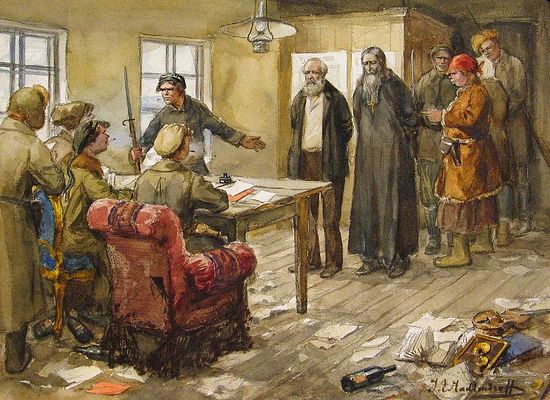
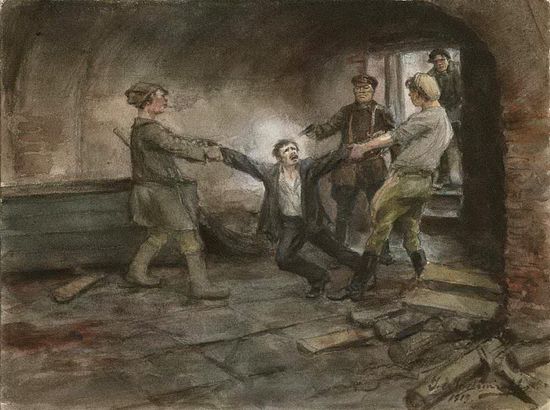
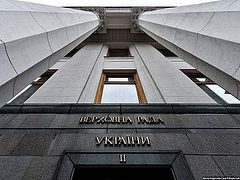
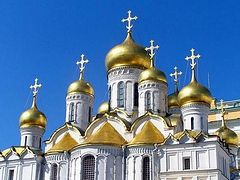
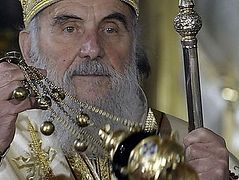
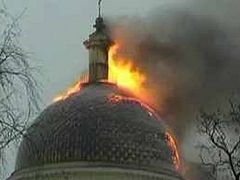
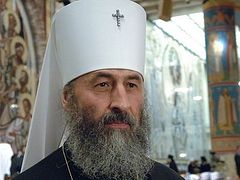
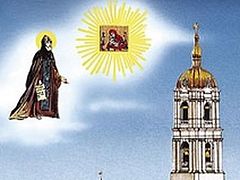
- Anthony, Larnaka, Kypros